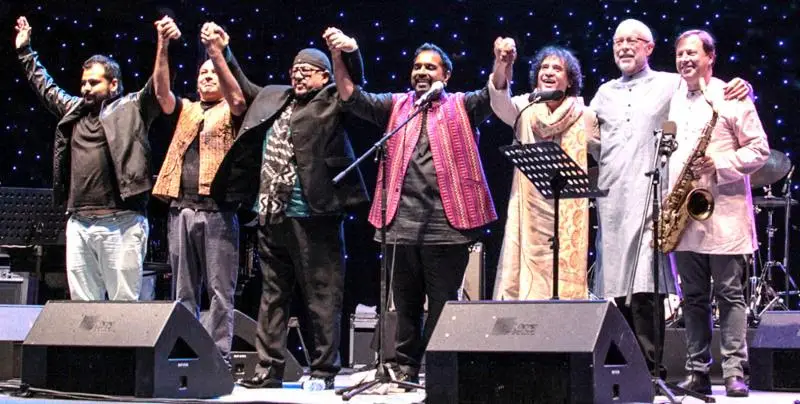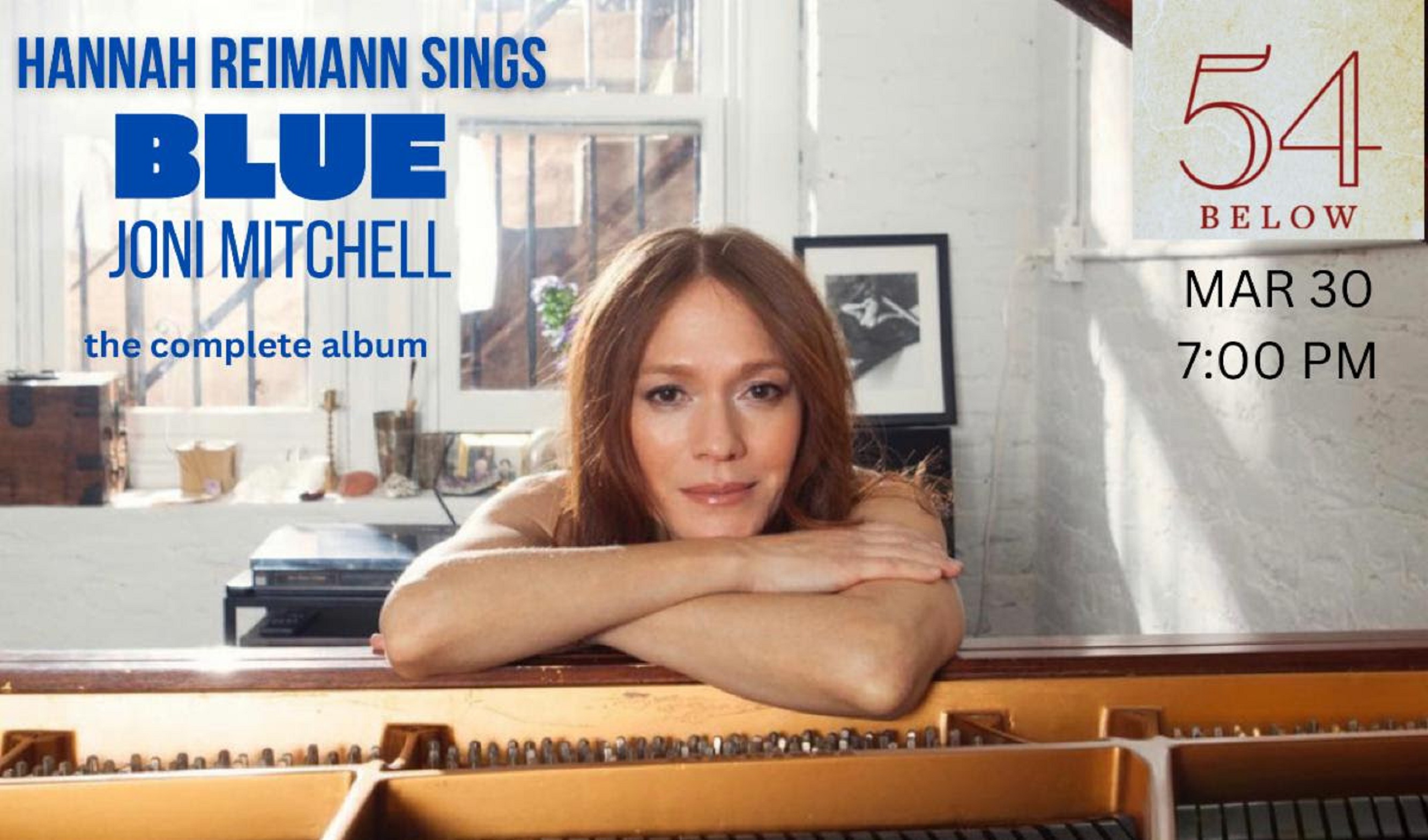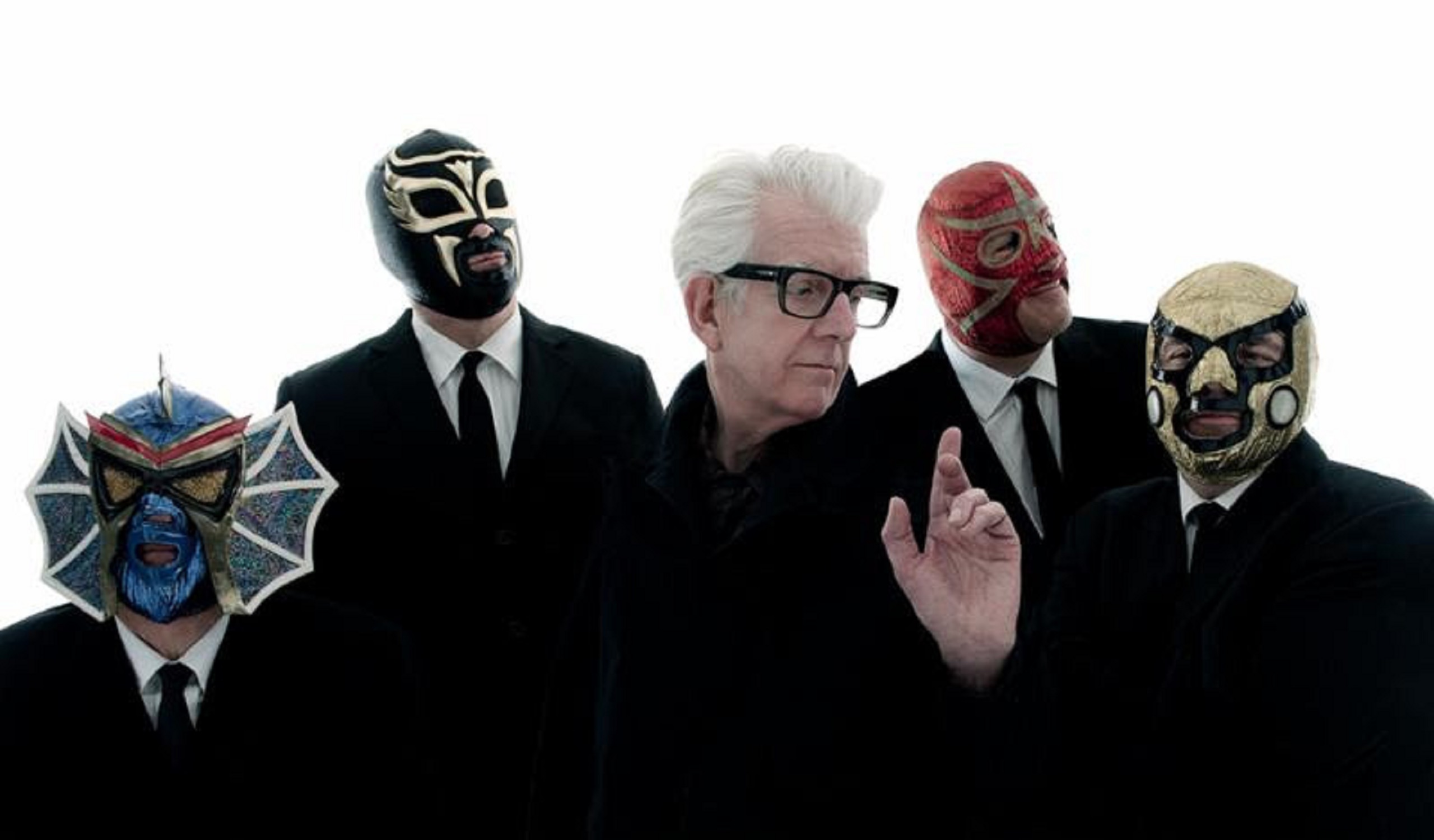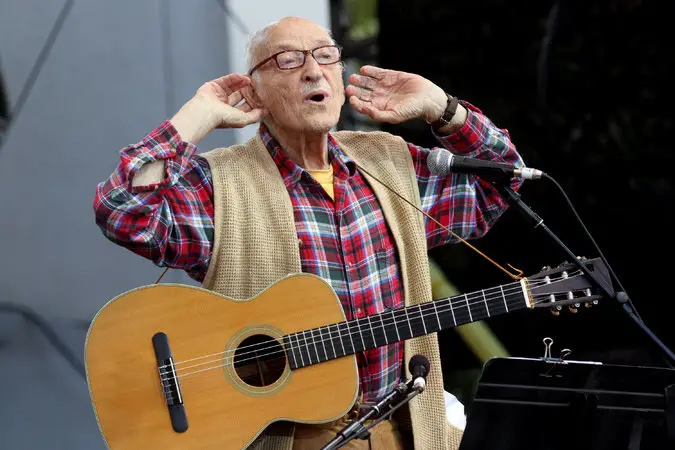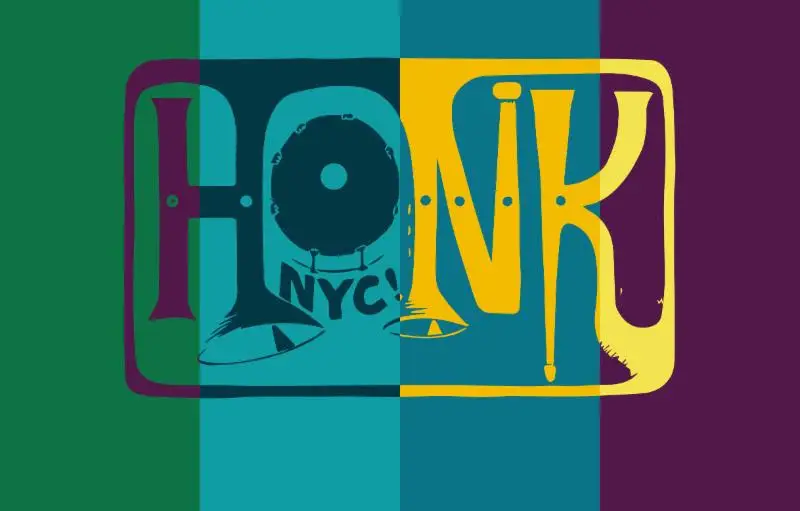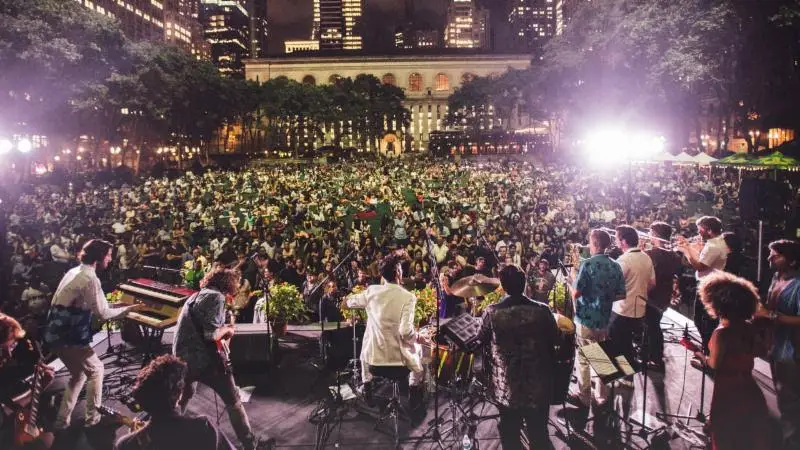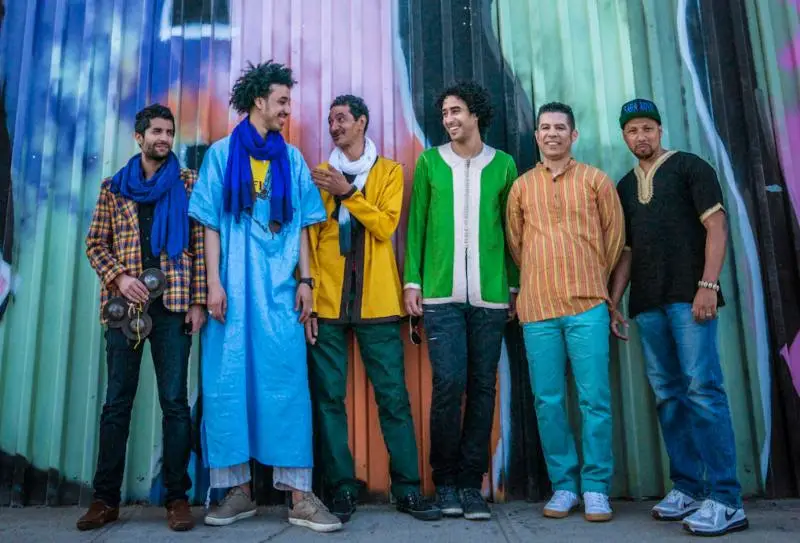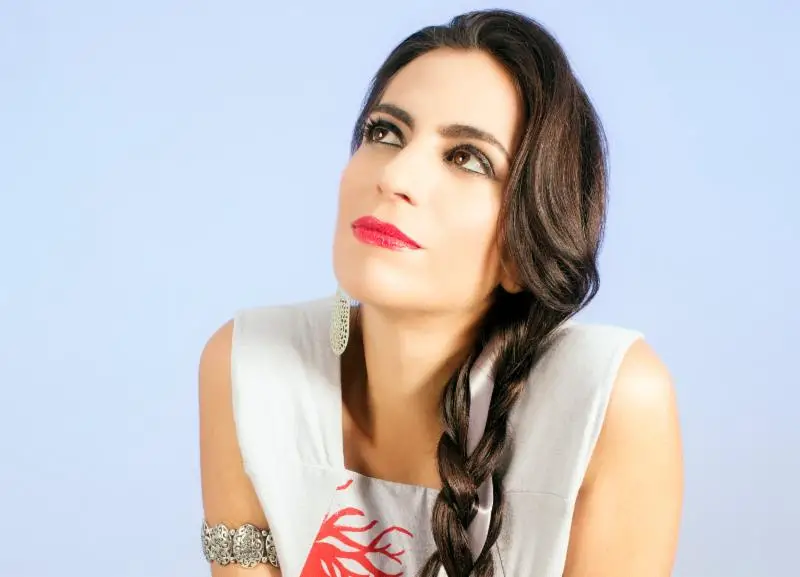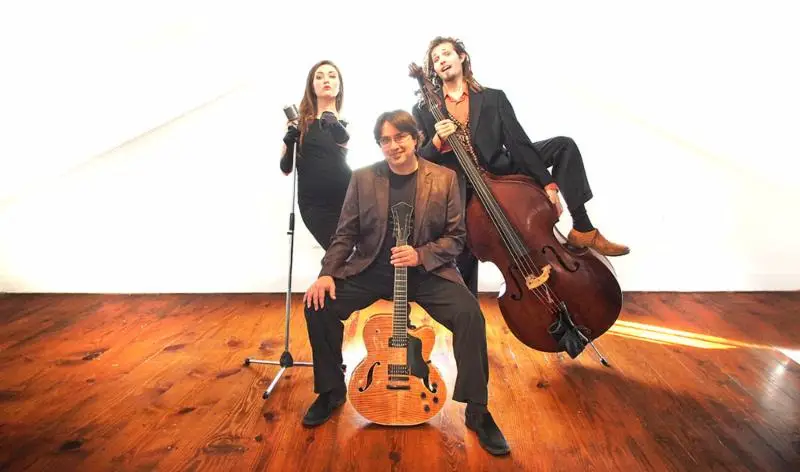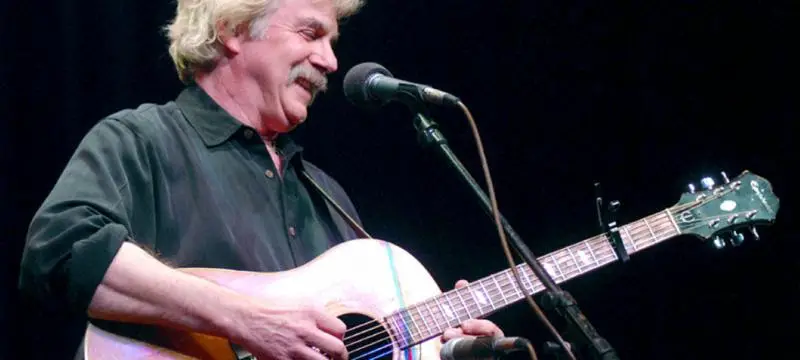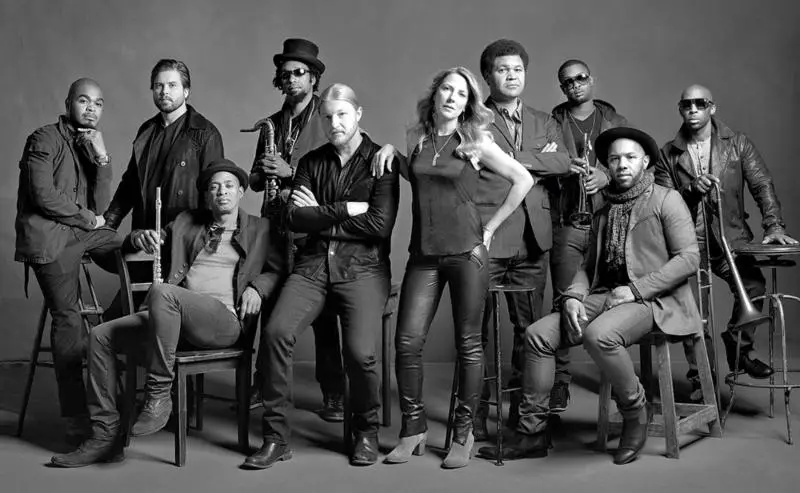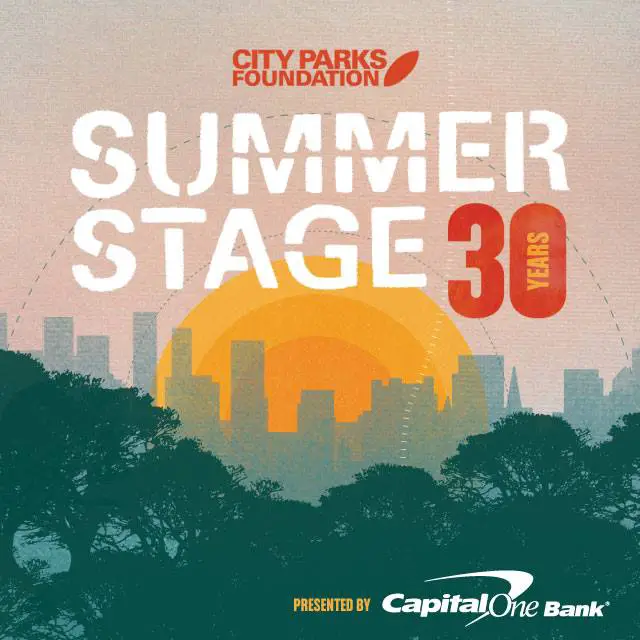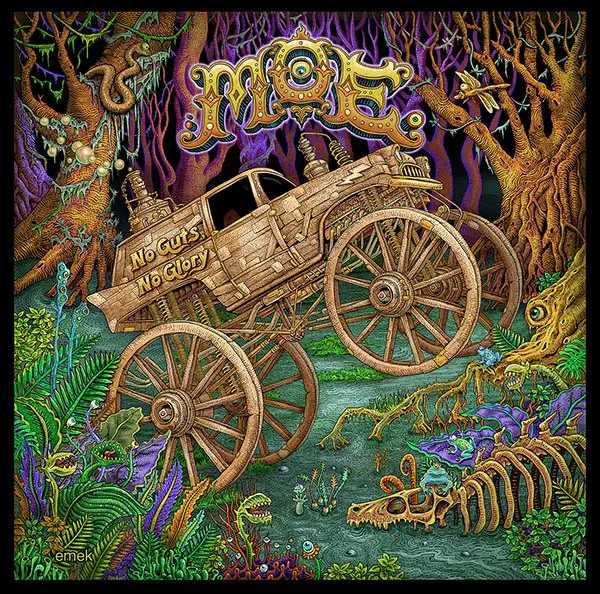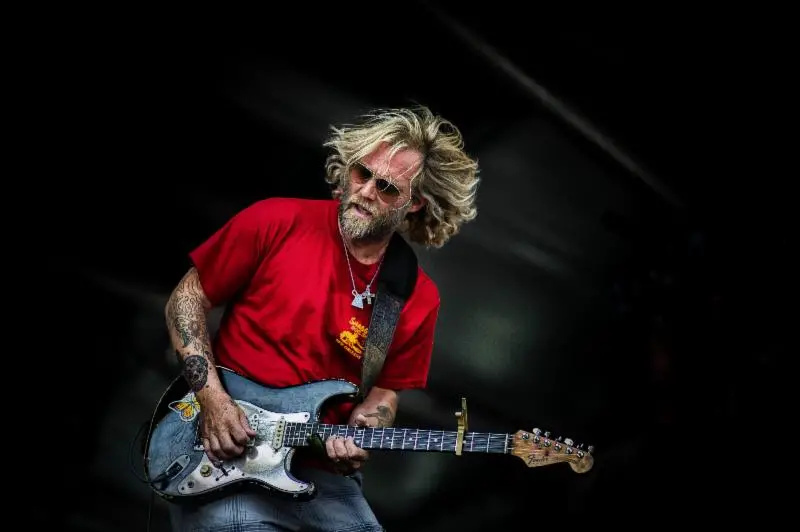A classical tabla virtuoso of the highest order, Zakir Hussain is well-known for his constant explorations of music from around the world. His latest ensemble, CrossCurrents, attempts to portray all directions of inspiration between the idioms of jazz and Indian music. The great bassist Dave Holland, a player with one of the most distinguished careers in jazz, brings his singular vision to the group. The ensemble pays tribute to pioneering musicians and composers on opposite sides of the world who built a bridge which could be traversed in both directions. Joining Hussain and Holland will be Chris Potter (saxophone), Shankar Mahadevan (vocals), Louiz Banks (keyboards), Sanjay Divecha (guitar), and Gino Banks (drums).
The pre-eminent classical tabla virtuoso of our time, Zakir Hussain is appreciated both in the field of percussion and in the music world at large as an international phenomenon. A national treasure in his native India, he is one of the world's most esteemed and influential musicians, renowned for his genre-defying collaborations. Widely considered a chief architect of the contemporary world music movement, Hussain's contribution has been unique, with many historic and groundbreaking collaborations, including Shakti, Remember Shakti, Masters of Percussion, the Diga Rhythm Band, Planet Drum, Tabla Beat Science, Sangam with Charles Lloyd and Eric Harland, in trio with Bela Fleck and Edgar Meyer and, most recently, with Herbie Hancock. The foremost disciple of his father, the legendary Ustad Allarakha, Hussain was a child prodigy who began his professional career at the age of twelve, touring internationally with great success by the age of eighteen. As a composer, he has scored music for numerous feature films, major events and productions. He has composed two concertos, and his third, the first-ever concerto for tabla and orchestra, premiered in India in September, 2015, in Europe and the UK in 2016, and in the US in April, 2017, by the National Symphony Orchestra at Kennedy Center. A Grammy award winner, he is the recipient of countless awards and honors, including Padma Bhushan, National Heritage Fellowship and Officier in France's Order of Arts and Letters.
Over the course of a nearly five-decade career, bassist/composer Dave Holland has exemplified the evolutionary process in musical form, reinventing his concept and approach with each new project while constantly honing his instantly identifiable voice. Since his professional debut in the mid-1960s with Miles Davis's legendary Bitches Brew band, that voice has been heard in a remarkable number of different contexts. He collaborated with Spanish guitar legend Pepe Habichuela, accompanied the great vocalist Betty Carter in her last years, forged a new sound with the pioneering avant-garde quartet Circle alongside Chick Corea, Anthony Braxton, and Barry Altschul, stood alongside legends like Stan Getz, Hank Jones, Roy Haynes, and Sam Rivers, and provided early opportunities to now leading players like Chris Potter, Kevin and Robin Eubanks, and Steve Coleman. Dave Holland has been at the forefront of jazz in many of its forms since his earliest days. He leads a Grammy-winning big band, an acclaimed quintet, and the Overtone quartet. He is also part of a duo with Kenny Barron and has released a number of important solo recordings.
A world-class soloist, accomplished composer, and formidable bandleader, saxophonist Chris Potter has emerged as a leading light of his generation. DownBeat called him "One of the most studied (and copied) saxophonists on the planet" while JazzTimes identified him as "a figure of international renown." Jazz sax elder statesman Dave Liebman called him simply, "one of the best musicians around," a sentiment shared by the readers of DownBeat in voting him second only to tenor sax great Sonny Rollins in the magazine's 2008 Readers Poll. Potter's impressive discography includes 15 albums as a leader and sideman appearances on over 100 albums. He was nominated for a Grammy for his solo work on "In Vogue," a track from Joanne Brackeen's 1999 album Pink Elephant Magic, and was prominently featured on Steely Dan's Grammy-winning album from 2000, Two Against Nature. He has performed or recorded with many of the leading names in jazz, such as Herbie Hancock, Dave Holland, John Scofield, the Mingus Big Band, Jim Hall, Paul Motian, Dave Douglas, Ray Brown and many others. His most recent recording, Ultrahang, is the culmination of five years' work with his Underground quartet with Adam Rogers on guitar, Craig Taborn on Fender Rhodes, and Nate Smith on drums. His penchant for risk taking and genre bending make him ideal for CrossCurrents.
Shankar Mahadevan is among the greatest Indian vocalists alive, having risen to fame in Mumbai's fabled Bollywood film industry as a composer, playback singer, and member of the famed Shankar-Ehsaan-Loy composing team. He sang from his earliest days, but then diverted into a career as a software engineer. In 1998 he ventured into music and released his first album, Breathless (so named because the title song was written as though it was to be sung in one breath). This quickly brought him to the attention of Bollywood, and he soon became the singing voice of every Tamil hero. He won the first of his many awards for his film music with a collaboration with legendary director A.R. Rahman, then won several National Film Awards. As time went on, he found his own compositional voice, and he has since become the leading composer in Indian film music, selling millions of records every year. In 2012 he was invited by UNESCO and the U.S. State Dept. to perform at the United Nations for the finale of the International Jazz Festival. He previously worked with Zakir Hussain as the vocalist for Remember Shakti.
Louiz Banks has been nicknamed the "Godfather of Indian Jazz," and it's appropriate; his commitment and devotion to jazz convinced his father to change his son's name to Louis in honor of the greatest of jazz trumpet players, Louis Armstrong. He began playing music in his homeland of Nepal, but his career accelerated when he settled in Mumbai, where his performance work in night clubs popularized the genre. His work (co-producer, arranger, and pianist) on Miles from India brought his name to great recognition in America, receiving a Grammy nomination. In the same year, he was the featured keyboardist on another Grammy-nominated album, John McLaughlin's Floating Point.
Sanjay Divecha's entire history has seen him pursue a vision of world community as expressed through music, which is in perfect accord with the implicit principles of CrossCurrents. Born in Mumbai, he began his formal musical studies with five years of traditional sitar. At the same time, he was listening to Western folk, blues, jazz, and rock, and eventually settled on the guitar as his primary instrument. Largely self-taught, he decided to expand his horizons and study in America, and in 1987 he landed at the Guitar Institute of Technology in Los Angeles, where he worked with Scott Henderson, Joe Diorio, and Robben Ford. Over 15 years in Los Angeles he recorded and toured with the likes of Angelique Kidjo and Carlos Santana, among many others. He returned to India in 2003 to reconnect with his cultural roots and absorbed Indian folk music from both North (Hindustani) and South (Carnatic) traditions. His album Full Circle, released in 2008, captures that journey.
It is clear that the adventurous spirit of world music exploration is in Gino Banks' (Louiz's son) DNA. He has played with classical greats like Pandit Shivkumar Sharma, Ustad Rashid Khan, Pandit Vikku Vinayakram, Ustad Sabir Khan, and many others. He is a stalwart in the Bollywood Shankar-Ehsaan-Loy film music world. He works regularly with fusion groups like Niladri Kumar's Sitar Funk, Rakesh Chaurasia's RAF, and many others. Rock music is in his world, and he has backed many dance groups. One of his best known efforts was taking part in Bob Belden's Grammy-nominated Miles from India. Gino also teaches, primarily at the True School of Music.
One of India's reigning cultural ambassadors, Zakir Hussain is known worldwide for his brilliant playing - The Washington Post says that "his virtuosity is barely to be believed" - but his innovative collaborations have also made him a chief architect of the contemporary world music movement. Grammy-winning bassist-composer Dave Holland, enjoying his fifth decade as a jazz superstar, was recently classified as "a master bassist and bandleader, and one of the most sophisticated composers and arrangers in the jazz world" by The Boston Globe.
When Hussain and Holland get together to play, they mesh their improvisational genius and musical intuition to pay tribute to pioneering musicians and composers on opposite sides of the world - those artists who first established the longstanding relationship between jazz and India's classical music.





